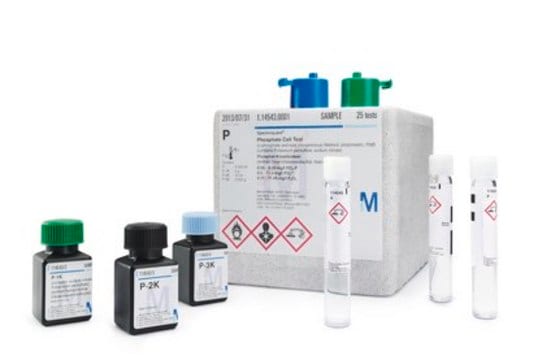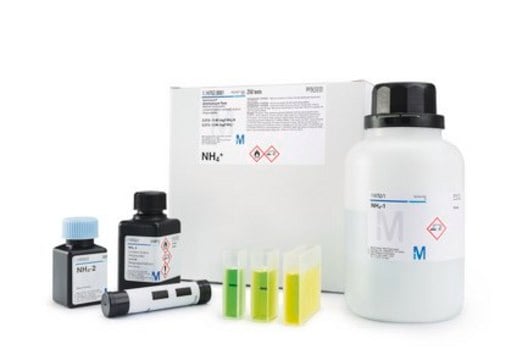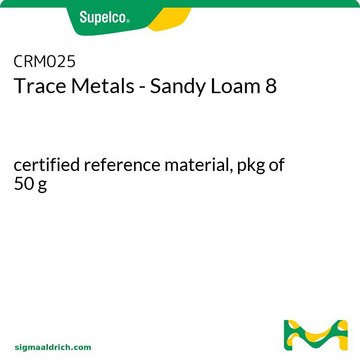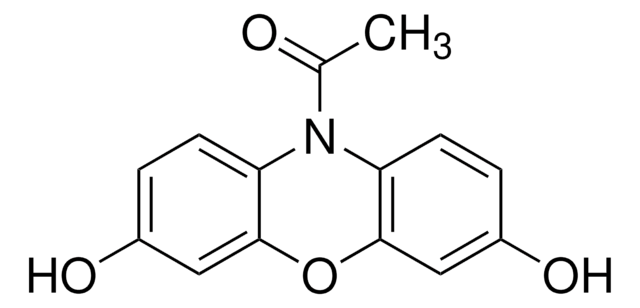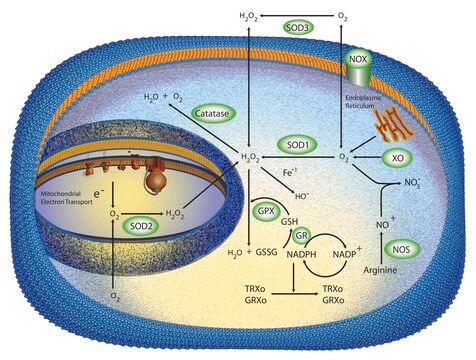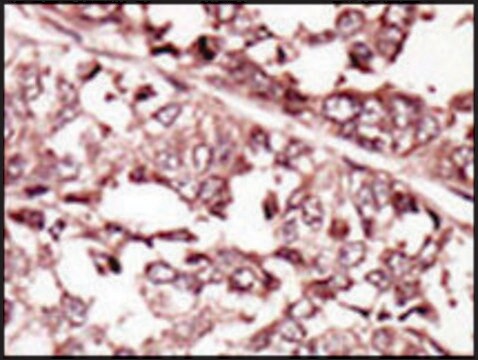MAK164
Intracellular Hydrogen Peroxide Assay
sufficient for 200 fluorometric tests (green fluorescence)
Sinônimo(s):
Hydrogen Peroxide Detection in Cells
Faça loginpara ver os preços organizacionais e de contrato
About This Item
Produtos recomendados
uso
sufficient for 200 fluorometric tests (green fluorescence)
método de detecção
fluorometric
doença(s) relevante(s)
aging/geriatric diseases; neurological disorders; pulmonary disorders; orthopedic diseases; cardiovascular diseases
temperatura de armazenamento
−20°C
Descrição geral
Hydrogen peroxide, a reactive oxygen species produced through the metabolism of molecular oxygen, serves as both an intracellular signaling messenger and a source of oxidative stress. Hydrogen peroxide is generated in cells via multiple mechanisms such as the NOX-mediated ROS production by neutrophils and macrophages (respiratory burst) or by the dismutase of superoxide anions produced as a result of electron leak during mitochondrial respiration. Abnormal hydrogen peroxide production contributes to oxidative cell damage and the progression of diseases such as asthma, atherosclerosis, osteoporosis, and neurodegeneration.
Aplicação
Intracellular hydrogen peroxide assay kit has been used to measure intracellular hydrogen peroxide levels.
Características e benefícios
Compatible with high-throughput handling systems.
Adequação
This kit is suitable for the detection of hydrogen peroxide in living cells and a variety of samples such as cell extracts and liquids.
Princípio
The Intracellular Hydrogen Peroxide Assay Kit provides a simple and reproducible method to quantify hydrogen peroxide levels in living cells and in a variety of other samples such as cellular extracts. This kit utilizes a unique cell-permeable sensor that generates a fluorescent product (λex = 490/λem = 520 nm) after reaction with hydrogen peroxide that can be analyzed by a fluorescent microplate reader, flow cytometer, or fluorescent microscope.
Código de classe de armazenamento
10 - Combustible liquids
Classe de risco de água (WGK)
WGK 3
Certificados de análise (COA)
Busque Certificados de análise (COA) digitando o Número do Lote do produto. Os números de lote e remessa podem ser encontrados no rótulo de um produto após a palavra “Lot” ou “Batch”.
Já possui este produto?
Encontre a documentação dos produtos que você adquiriu recentemente na biblioteca de documentos.
Os clientes também visualizaram
Evidence of oxidative stress and mitochondrial dysfunction in spinocerebellar ataxia type 2 (SCA2) patient fibroblasts: effect of coenzyme Q10 supplementation on these parameters.
Cornelius N, et al.
Mitochondrion, 34, 103-114 (2017)
Emily A Teslow et al.
Molecular oncology, 13(4), 894-908 (2019-01-13)
Obesity is a risk factor for triple-negative breast cancer (TNBC) incidence and poor outcomes, but the underlying molecular biology remains unknown. We previously identified in TNBC cell cultures that expression of epigenetic reader methyl-CpG-binding domain protein 2 (MBD2), specifically the
Maqusood Ahamed et al.
International journal of nanomedicine, 16, 89-104 (2021-01-16)
Therapeutic selectivity and drug resistance are critical issues in cancer therapy. Currently, zinc oxide nanoparticles (ZnO NPs) hold considerable promise to tackle this problem due to their tunable physicochemical properties. This work was designed to prepare SnO2-doped ZnO NPs/reduced graphene
Robert B Rosenblatt et al.
Theranostics, 11(2), 602-613 (2021-01-05)
Mechanical forces from non-ablative pulsed focused ultrasound (pFUS) generate pro-inflammatory tumor microenvironments (TME), marked by increased cytokines, chemokines, and trophic factors, as well as immune cell infiltration and reduced tumor growth. pFUS also causes DNA damage within tumors, which is
Nanna Cornelius et al.
Mitochondrion, 34, 103-114 (2017-03-07)
Spinocerebellar ataxia type 2 (SCA2) is a rare neurodegenerative disorder caused by a CAG repeat expansion in the ataxin-2 gene. We show increased oxidative stress, abnormalities in the antioxidant system, changes in complexes involved in oxidative phosphorylation and changes in
Nossa equipe de cientistas tem experiência em todas as áreas de pesquisa, incluindo Life Sciences, ciência de materiais, síntese química, cromatografia, química analítica e muitas outras.
Entre em contato com a assistência técnica
